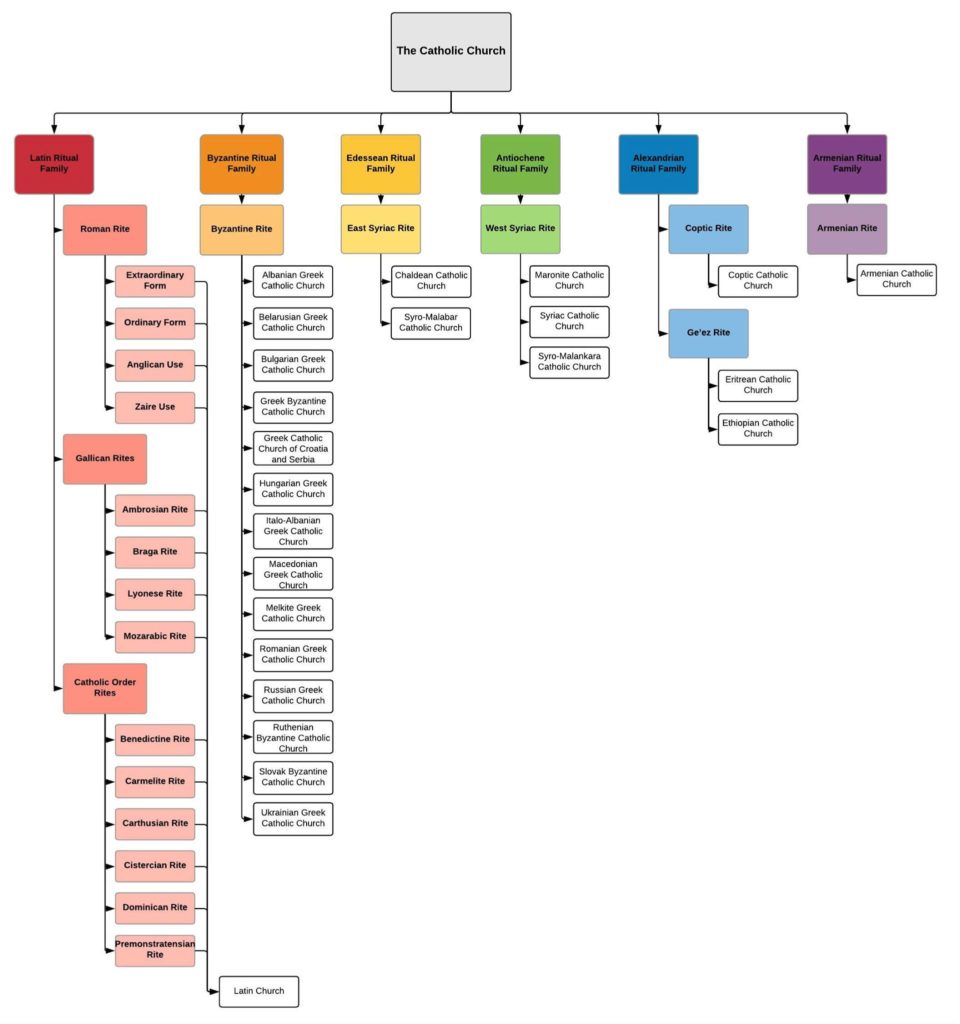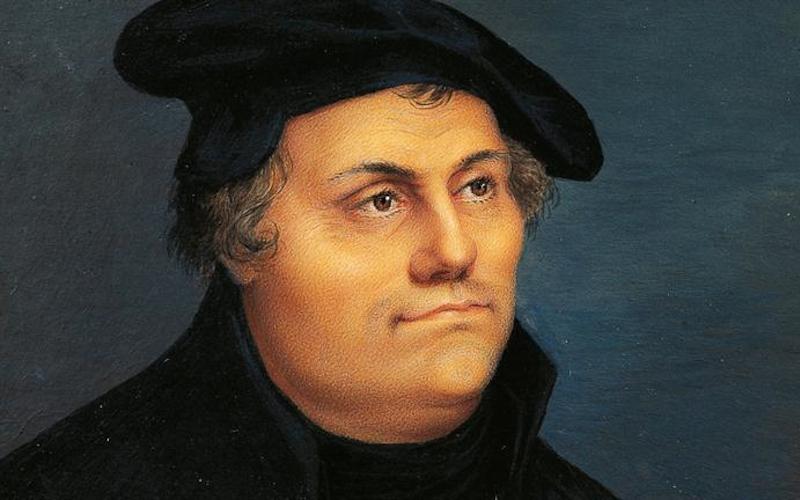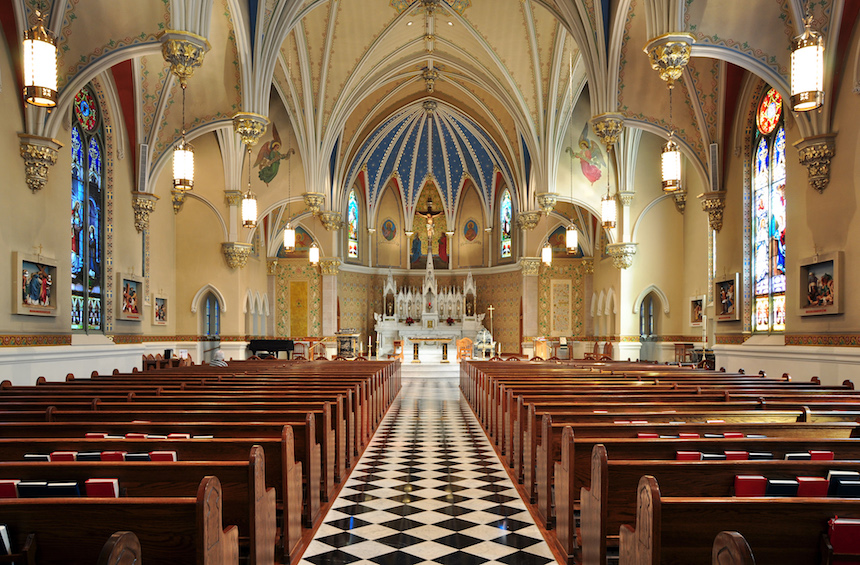
I began listening to talks by John Martignoni years ago. Recently on his mailing list, he posted a series of questions about the Church, as well as their Scriptural responses. Here it is:
1. Did Jesus found a church?
Yes; Matthew 16:18
2. How many churches did Jesus found?
One. The church is the Body of Christ and there is only one body of Christ.
Romans 12:5, Ephesians 4:4, Colossians 1:18
3. So, if Jesus founded a church, then when was it founded?
2000 years ago
4. Was that church guided by the Holy Spirit?
Yes; John 14:26, John 16:13; Acts 2:3-4
5. If the church was founded by Jesus Christ and was guided by the Holy Spirit, could it teach doctrinal error?
No; 1 Tim 3:15
6. So, could we say that the church founded by Jesus Christ and guided by the Holy Spirit, taught doctrinal truth infallibly – without error – to the 1st century Christians?
Yes; Luke 10:16, John 14:16-17, 1 Peter 1:12
7. Did the church of the New Testament teach different doctrinal truths to different people in different areas?
No; 2 Timothy 1:12-14, Ephesians 4:14, Titus 1:9
8. Are there any denominations in the church of the New Testament?
No. The church in the New Testament is one, just as the Body of Christ is one – 1 Corinthians 1:10, 1 Corinthians 11:18-19, Jude 19
9. Would a church founded by Jesus Christ and guided by the Holy Spirit still be in existence today?
Yes; Matthew 16:18, Matthew 28:20, Ephesians 3:21
10. How old would that church be?
2000 years old
11. Would that church still be guided by the Holy Spirit?
Yes; Matthew 28:20, John 14:16
12. Could that church founded by Jesus and still guided by the Holy Spirit teach doctrinal error?
No; 1 Timothy 3:15, 1 Corinthians 12:28
13. So we could say that the church founded by Jesus Christ and guided by the Holy Spirit would still teach doctrinal truth infallibly?
Yes; Luke 10:16, John 14:16-17, 1 Peter 1:12
14. Would that church founded by Jesus Christ and guided by the Holy Spirit teach different doctrinal truths to different people in different areas?
No; Malachi 3:6, Hebrews 13:8, 1 Timothy 4:6
15. Would there be any denominations in that church?
No; 1 Corinthians 1:13
16. Can the Lutheran denomination be the church founded by Jesus in Israel 2000 years ago?
No; It was founded by Martin Luther in Germany in the 1500’s.
17. Q) Can the Anglican/Episcopalian denomination, or any of its offshoots, be the church founded by Jesus in Israel 2000 years ago?
No; It was founded by King Henry the VIII in the 1500’s because he wanted to divorce his wife.
18. Are there any Protestant, Baptist, Evangelical, Pentecostal, Fundamentalist, or Non-Denominational denominations that were founded by Jesus in Israel 2000 years ago?
No.
19. So is there any Protestant, Baptist, Evangelical, Pentecostal, Fundamentalist, or Non-Denominational denomination that could be the church founded by Jesus Christ in Israel 2000 years ago?
No.
20. So if Jesus founded a Church – one Church – in Israel 2000 years ago that was guided by the Holy Spirit and that Church is still in existence today and is still guided by the Holy Spirit, which means it teaches doctrinal truth infallibly, and there are no denominations of that Church now, just as there were no denominations of that Church 2000 years ago, then shouldn’t all Christians be in that one Church founded by Jesus?
Yes
21. Does it make sense to be in a church that was not founded by Jesus Christ in Israel 2000 years ago?
No.
22. How can we identify which Church – of the thousands upon thousands – is THE Church founded by Jesus?
The Church founded by Jesus, should at least claim to be THE Church founded by Jesus; it should be able to trace its leadership back 2000 years to the Apostles; and it should claim to be guided by the Holy Spirit and to thus teach doctrinal truth infallibly with the authority of Jesus Christ, its Founder.
23. How many churches fit that description?
One
24. Which Church is that?
The Catholic Church




 When Mr. Bean went to Church…
When Mr. Bean went to Church…

 Today’s funny comes from CollegeHumor with a wonderfully insightful video about a church for the “Spiritual, not religious”. Warning: contains some salty language.
Today’s funny comes from CollegeHumor with a wonderfully insightful video about a church for the “Spiritual, not religious”. Warning: contains some salty language.